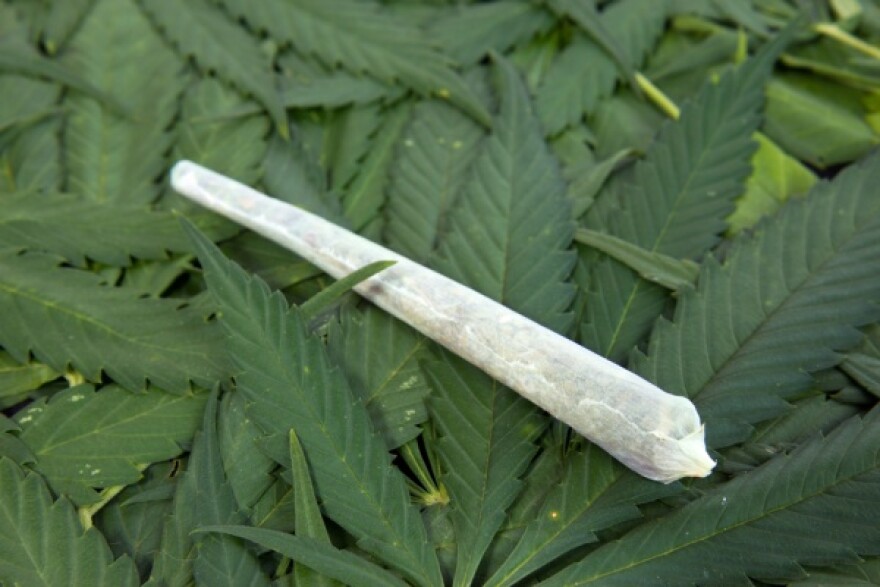With some of the nation’s harshest punishments for marijuana possession and an ultra-conservative Republican governor at the helm, few would expect Louisiana might be the next state to allow folks to light up a joint. Yet one state lawmaker is planning to push to lighten up some pot laws during the upcoming legislative session.
Representative Dalton Honore’ of Baton Rouge, a Democrat, says the times, they are a-changin’.
“You know, I can remember the times I would arrest somebody for a cigarette of marijuana and they would get sent to prison for it,” says the former sheriff’s deputy. “But that attitude has changed. Twenty states plus the District of Columbia have medical marijuana uses. We also have two states that have marijuana for recreational use.”
Honore’ believes the time is now right to take another look at how the state punishes those convicted of marijuana possession.
“Louisiana has more persons incarcerated per capita than anywhere in the world.” Honore’ explains the philosophy that’s led to that statistic. “Build the prisons and fill ‘em up. And we filled ‘em up and we still got ‘em full. And it’s a drain on our economy, on our society, and it’s nothing to be proud of.”
Rep. Honore’ has pre-filed House Bill 130, which would prohibit using any marijuana conviction as one of the “three strikes” toward getting a life sentence under the state’s “habitual offender” law.
“The majority of the persons doing time under the Habitual Offenders Act, they were at one time arrested for possession of marijuana. Marijuana being used as a tool to sentence people as habitual offenders is wrong. It has crowded our prisons. The money we spending on that—it’s wrong!”
Honore’ plans to sell the idea to the more conservative legislators as a cost-saving measure, since—on average—each prisoner costs Louisiana $23,000 per year. The state has more than 40,000 people currently serving jail sentences.
In addition to his H.B. 130, Honore’ says he will be filing a resolution requiring the Department of Health and Hospitals to set up a system for distributing medical marijuana.
“That’s in the law that’s already on the books—was passed in 1991. But the schematics on how it was to be dispensed was never followed through on.”
Louisiana was actually one of the first states to pass a medical marijuana law, with an initial version being approved in 1978 for people with glaucoma and certain cancers. The current law, Louisiana RS 40:1046, was approved by the 1991 Legislature, and signed into law by Governor Buddy Roemer. It allows physicians to prescribe marijuana for patients undergoing cancer chemotherapy, for those with glaucoma, and those suffering from a spastic quadripeligia—a severe form of cerebral palsy. The law directed DHH to set up regulations and a system for dispensing medical marijuana, but no distribution system was ever implemented.
Dr. Rani Whitfield, a Baton Rouge physician, believes marijuana could be beneficial for some of the patients he sees in his general practice. He says research now shows marijuana can help a variety of ailments—from fibromyalgia to HIV/AIDS wasting disease. He is also aware the conventional medical establishment has consistently argued against using marijuana as a medicine.
“The arguments have been: ‘It’s a plant.’ ‘Everybody smokes it differently,’ you know?, Dr. Whitfield says. “There’s definitely different delivery systems. Marijuana can be liquefied, it can be eaten, it can be smoked—obviously—and vaporized. And vaporizing marijuana seems to be one of the better delivery systems that is less toxic to the body. It causes less inflammation as a result of it. Standardization needs to be done, obviously, but that’s some of the potential avenues that we’re heading down.”
The American Medical Association voted this past November to continue their opposition to legalizing marijuana. But a Public Policy Polling survey, commissioned by the Louisiana ACLU and conducted last September, showed 53% of Louisiana residents support legalization and taxing marijuana. And 65% support making medical marijuana available. Dr. Whitfield says he’s part of that 65-percent.
“I think it’s a disservice to our community and to our citizens not to at least research the drug and find out if there’s some therapeutic benefit,” Whitfield explains.
Surprising to many, last month Governor Bobby Jindal indicated he would not object to implementing Louisiana’s 23-year-old law allowing doctors to prescribe marijuana for certain patients.
“When it comes to medical marijuana, I’ll be honest—it’s not an issue I’ve looked closely at,” Jindal said on January 22. “If there is a legitimate medical need, I’d certainly be open to making it available under very strict supervision for patients that would benefit from that.”
So how to explain what appears to be an about-face from Louisiana’s oh-so-conservative governor? Perhaps it has something to do with the American Legislative Exchange Council, also known as ALEC. Jindal often supports ALEC-backed legislation, and the group has drafted a model resolution for state lawmakers, supporting medical marijuana.
Also important to note are the names of some of ALEC’s biggest financial backers—pharmaceutical giants like Bayer, GlaxoSmithKline, Pfizer, and Abbott Laboratories. Abbott is the company that makes Marinol, which is also known as the marijuana pill.


